The Jepson Prairie Preserve in Solano County is a great place to see a number of rare plants, in a special environment. This is more of a “stroll” than a “hike”, but it is well worth visiting. The reserve protects one of the few remaining vernal pool habitats in California. If you have the chance to visit in mid to late Spring you will see some amazing sights.
This year (2011) we visited it in mid March of a wet year, so we were ahead of the major bloom. We did find some wonderful flowers (and animals), but this year the best bloom will be later.
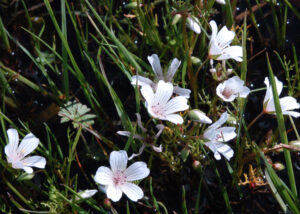
Click on any photograph to see a larger image
The Hike
As I said, it isn’t much of a hike. If you go there on your own, there is an open area that you can wander through, immediately adjacent to the parking lot. It is entirely flat, but fairly wet. Bring galoshes or a change of shoes.
What you are looking at is a collection of temporary or “vernal” pools. The largest is Olcott Lake, which starts off at around 93 acres. They are formed by rain water that has been trapped by an impermeable layer of soil. As the weather warms up a wonderful variety of flowers appear, including 15 rare and endangered species (over 400 of plants that have been found in the Reserve).
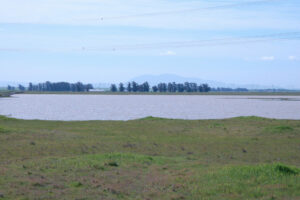
As the pools start to dry out and shrink you will find brilliant bands of flowers ringing them. In full bloom it is quite impressive. The most common flowers are massive swaths of Goldfields, Meadowfoam and Yellow Carpet.
I strongly recommend taking one of the docent-led tours the first time that you visit. These are held every Saturday and Sunday from mid March through mid May. See the Solano Land Trust web site for details on the tours. They usually start at 10:00 AM and run for two hours.
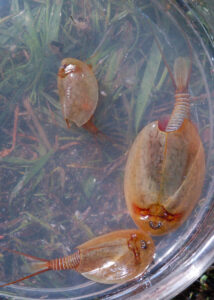
The docents can take you into areas that are normally off limits, and they’ll show you things that you won’t normally see on your own. The vernal pools are the home to a number of different kinds of shrimp and insects (more shots in the gallery at the end of this article), and they’ll be able to catch some to show to you. The pictures I have here aren’t that clear – keep in mind that these are animals that are (for the most part) just a fraction of an inch in size, and some of my shots were taken through the sides of a glass container (hand held, on a windy day).
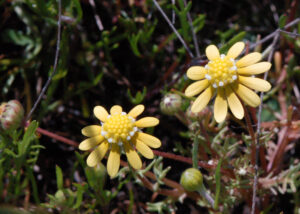
Timing is Everything
It is hard to identify what the best time is for visiting. A lot depends on the amount of rain each year. If you come early (like we did this year) you won’t see the wide rings of flowers around the pools. However, there are some flowers that you will only see early in the season. In a dry year the pools shrink fast.
If you have only one chance, I would try mid April, before it gets too hot. Keep in mind that it is almost always windy here, and that most of the flowers are very short so you’ll be getting down on your hands and knees in moist ground if you want to get a good look.
Directions
The Jepson Prairie Reserve is south of Dixon, California. From Interstate 80 take Highway 113 south. You will travel about 10 miles until Highway 113 takes a 90 degree turn to the east. At this point, instead of taking that turn, continue straight onto Cook Lane. Continue over the creek and railroad tracks until you see the eucalyptus grove and interpretive sign. These signs will show you the area where you can enter the Reserve. Tread carefully!
See the Solano Land Trust web site for details on the tours.
Jepson Prairie Wildflowers
Please feel free to correct any identification errors I may make. Click on any photograph to see a larger image.
The highlight of this trip was the Prairie Bells, which is a rare species.
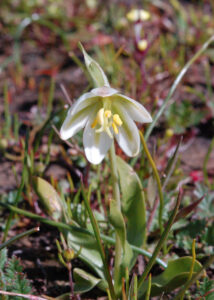
Fremont’s Goldfields is one of the flowers that will carpet the area once the weather warms up a bit.
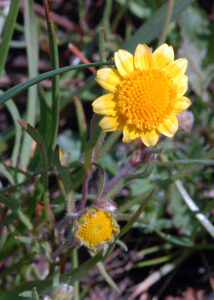
Here is a shot of a start of the bloom, with a mixture of Goldfields, Yellow Carpet and some Meadowfoam.
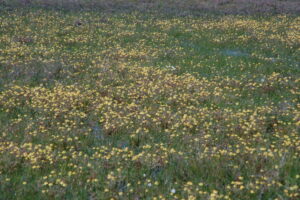
Padre’s Shooting Star were just starting to show, and they were a little beat up from the wind. These are much lighter colored than the shooting stars I’m used to from the Sierra’s.
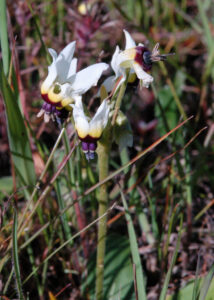
California Golden Violet is very similar to the violets you will find in your local nursery.
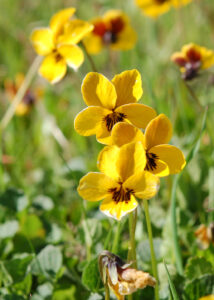
If you click on the lightbox image below you will see larger versions of the photos, and you can scroll through all of the plants (and other things) that we found on this hike. All photos are available for purchase in a variety of formats.


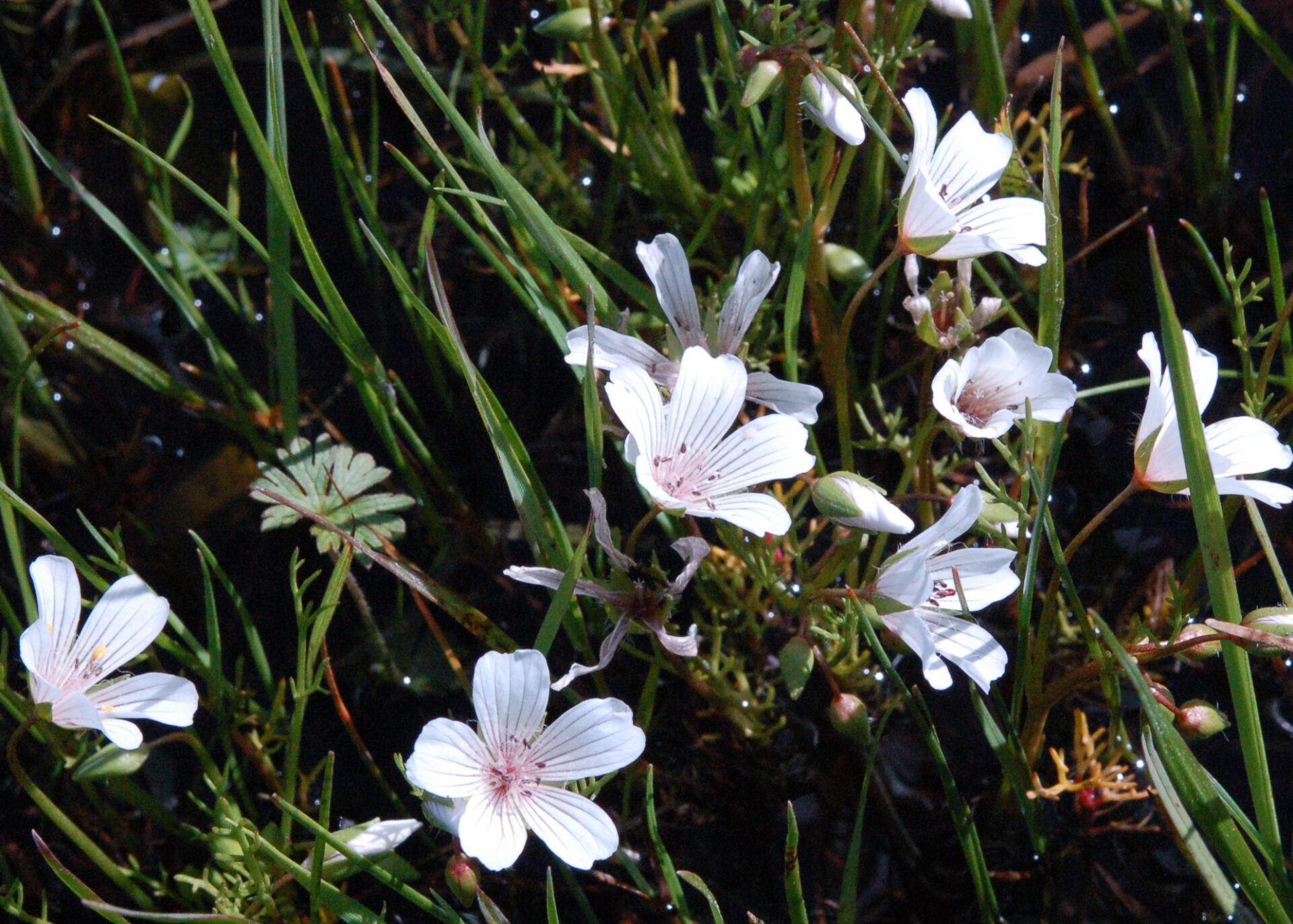
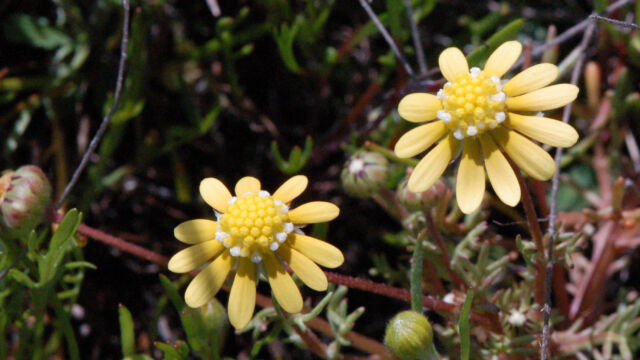
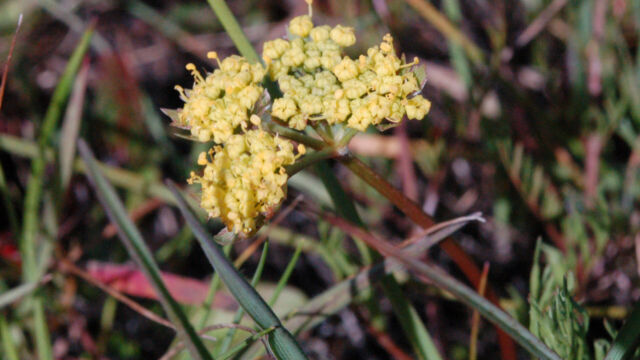
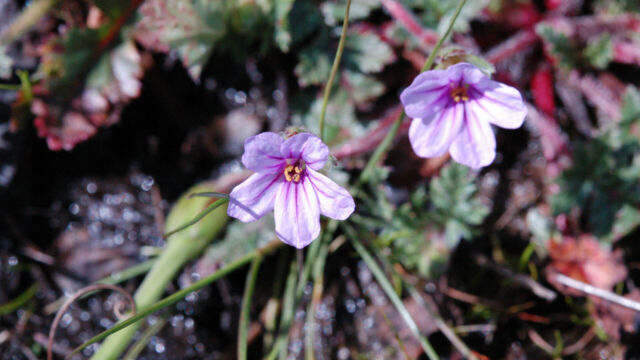
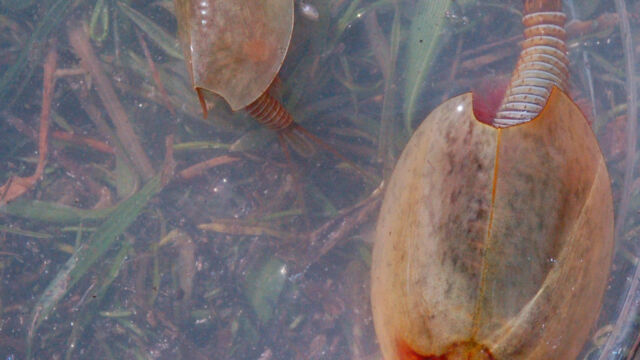
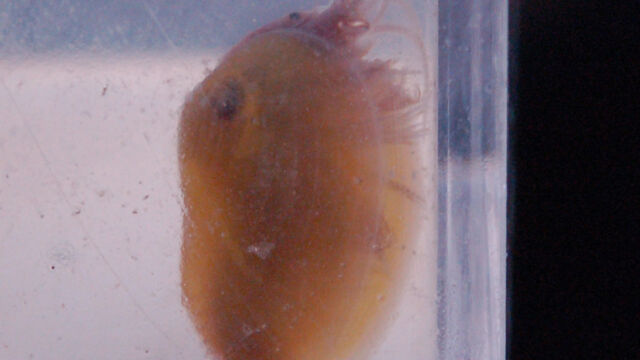
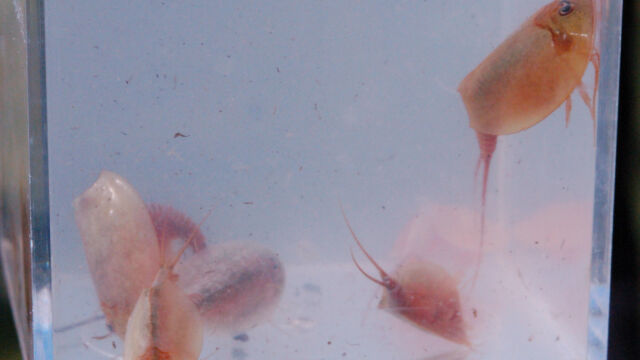
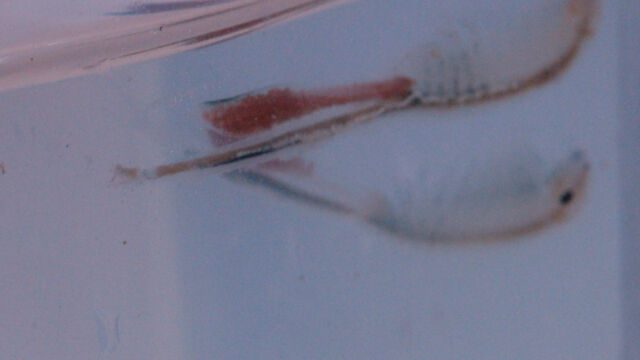
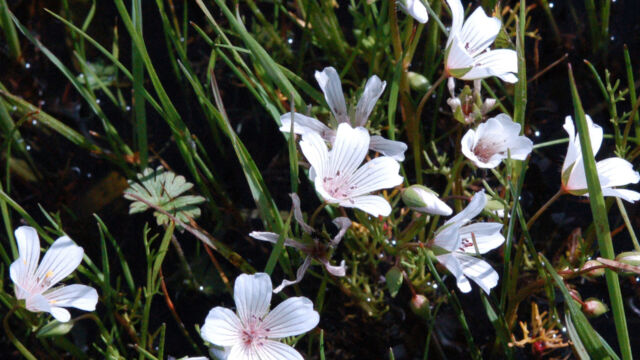
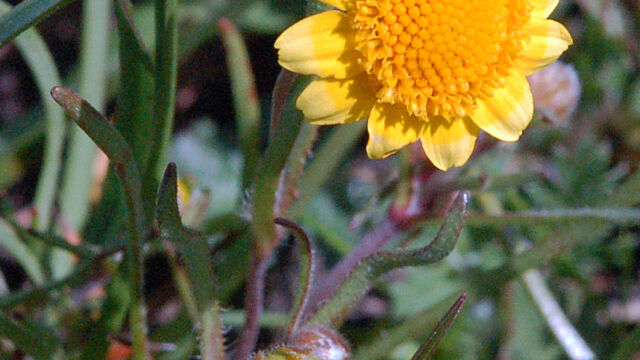
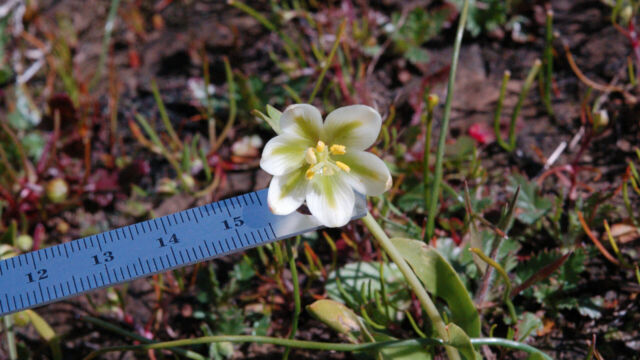
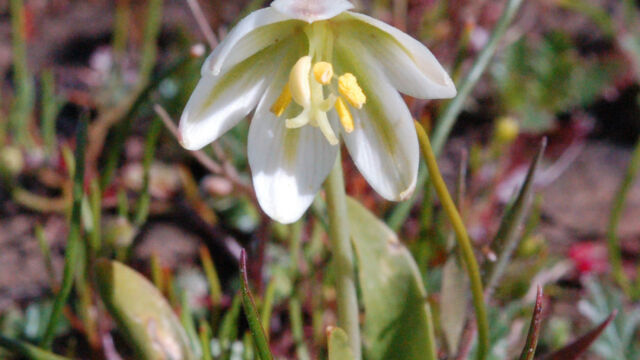
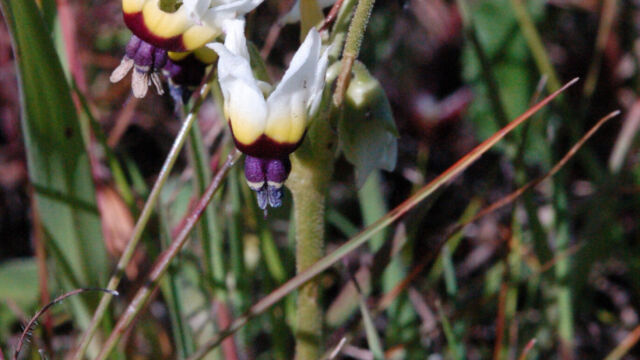
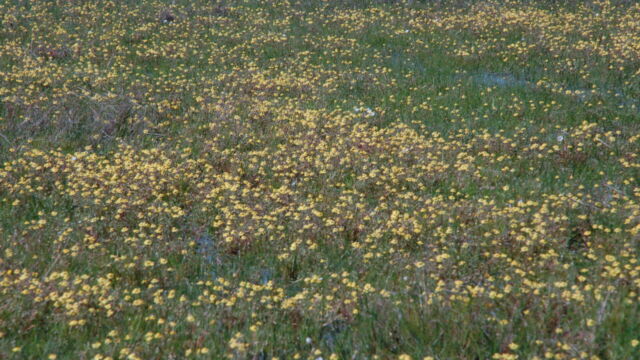
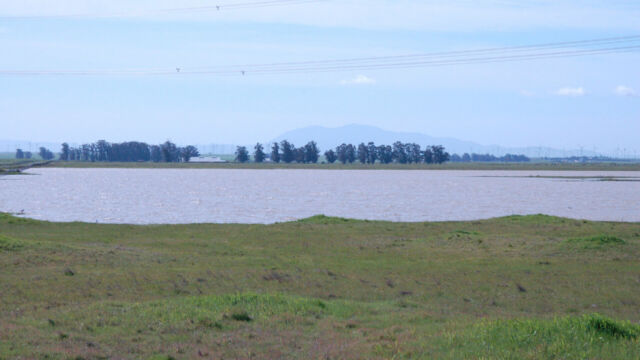
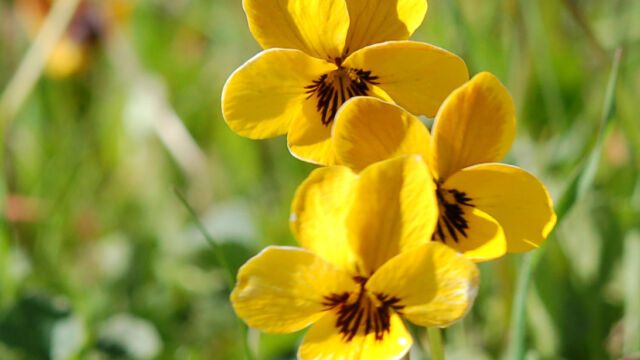
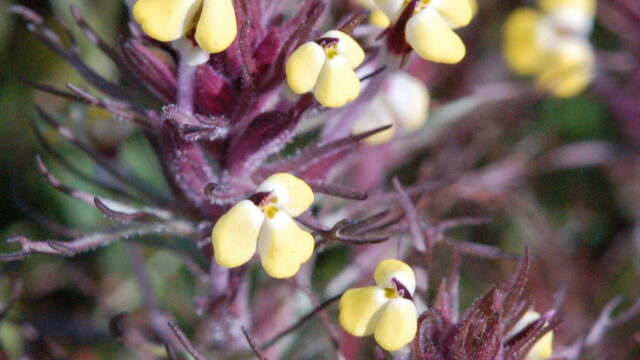
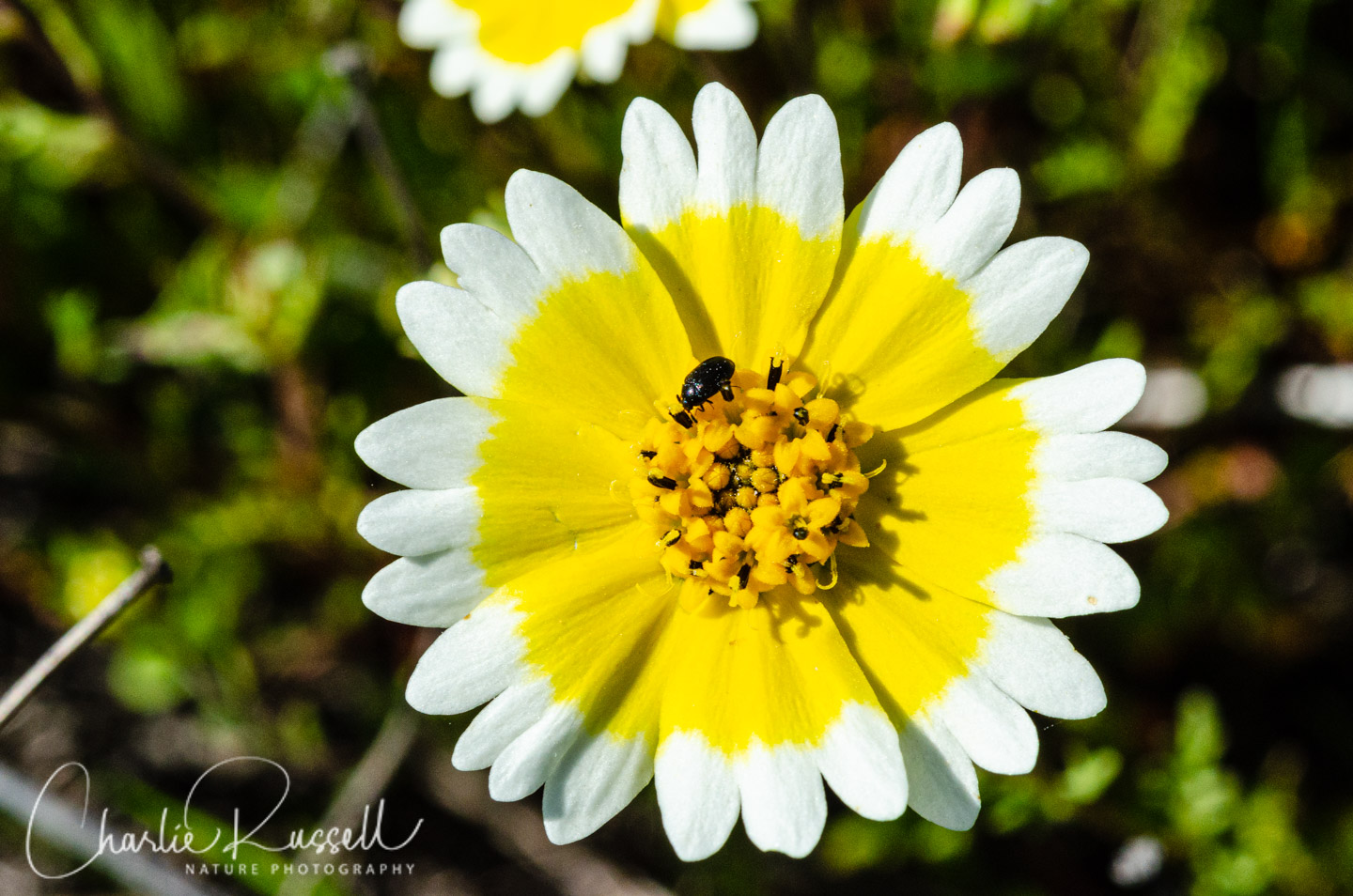

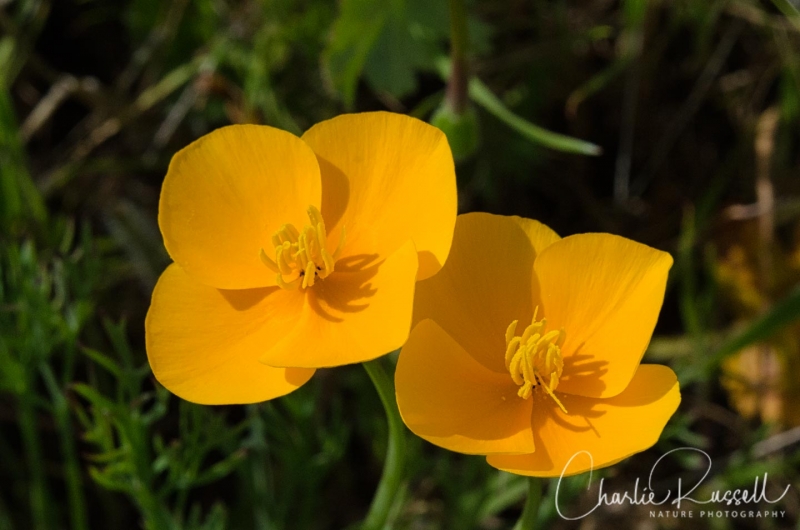
Excellent, excellent photos! I’ll be working on a native prairie in ND this summer for an internship. I can only hope to see as many cool flowers!
Thanks, Mike – Jepson Prairie is an unusual place, with the Vernal Pools, which create a very unique and special situation. But, good luck with your summer project, hope it goes well!
[…] Wildflower Report submitted by Charlie Russell of California Wildflower Hikes […]
i just wanted to ask if they allow picking the flowers?
In general, it is against the law to pick wildflowers.
In a preserve like this, it is definately not allowed. Many of these are endangered species, and this particular type of location is very rare.
And, from a moral standpoint, if you pick them, other visitors wouldn’t get to enjoy them!